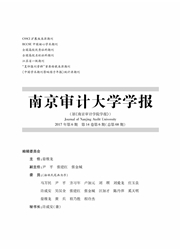

 中文摘要:
中文摘要:
2010年以来民营资本进入银行业已取得较大的进展。民营资本适度进入银行业可以带来推动银行业的市场化改革、疏导民间资本、服务实体经济的正面效应,但也存在引发恶性竞争、弱化公司治理、威胁金融系统稳定的风险。民营资本进入银行业有资本的进入、机构的进入两种方式。我国政府应在完善政策规则框架、严格控制准入数量、引导民营资本严格自律、建立风险补偿和市场退出机制方面规范民营资本进入银行业。
 英文摘要:
英文摘要:
Since 2010 a series of achievements have been made with the entry of private capital into banking industry. The en- try can motivate the market-oriented reform within the banking sector, avoid illegal fund-raising, and serve the real sector, but it also possibly goes with the potential risks of spurring vicious competition, weakening the corporate governance and threatening the stability of financial system. The entry has two channels including equity investment and the establishment of banks. With regard to the legislation on the entry, the authorities should complete the framework of related rules, strictly control the scale of the entry,and guide the private capital to be strict with self-discipline and to establish risk compensation and exit mechanism.
 同期刊论文项目
同期刊论文项目
 同项目期刊论文
同项目期刊论文
 期刊信息
期刊信息
